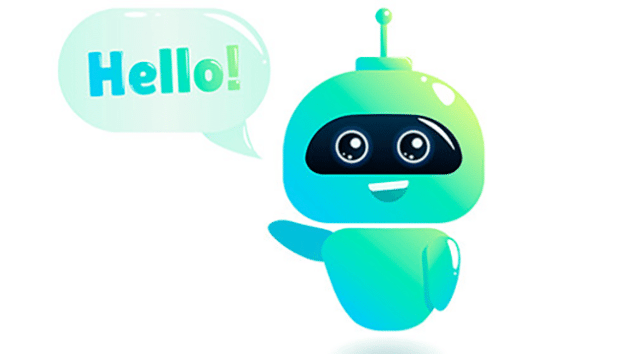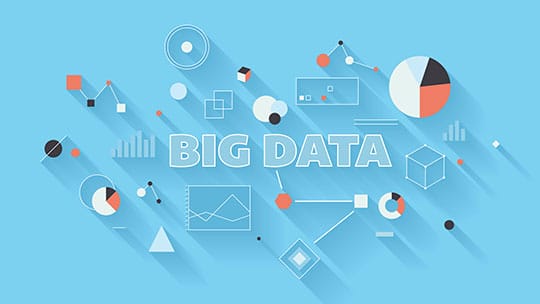Predictive analytics, Machine learning, and various Big Data technologies allow businesses to make data-driven decisions, improve their promotional campaigns, and also provide more personalized services to their clients and customers. Having been delighted with both their process improvement and also superior results, businesses have increasingly invested in the use of Artificial Intelligence. In fact, 91.5% of large companies have reported ongoing investments in AI.
So how can AI improve your PR and Marketing campaigns in the near future? These days you can easily hire a remote development team and build a digital product that will rock your industry. By leveraging Artificial Intelligence in your product, you can create a tailored solution that will help you to become truly successful in your goals.
Keep reading to learn more about the advantages of using Artificial Intelligence in your Public Relations strategy and how AI can upgrade your business to new heights.
AI in Public Relations: Use Cases

Have you ever used Google Analytics or Cision? These AI-powered tools can make your work much more efficient while leaving room for creativity. In addition, AI technologies can help you to focus more on your strategy, covering all data-processing activities.
However, AI in PR and Marketing is not limited to only these two tools. So how does AI change the Public Relations paradigm?
Recommended for you: How Artificial Intelligence is Changing Software Development?
1. Expands the range of communication channels
The growth of AI helps us to set up more modern and affordable ways of communication. And it ultimately improves user satisfaction and optimizes the entire working process.
What about 24/7 digital assistance for your interaction with your customers? It’s possible with chatbots now. They can provide real-time answers to your customers’ questions, even in the middle of the night. Such dedicated customer service can convert your potential customers into loyal clients.
Tools such as OMQ Chatbot can free up several PR employees from being overwhelmed by having to be in constant communication with their customers.
What channels can and should be improved with AI technologies?

Chats and Messengers
A good chatbot mimics the conversation between your customers and your support team without involving the latter. For example, a chatbot can split an answer into a few messages and attach the appropriate links, files, and visual content. It makes clients think that they’re chatting with a real person.
You should pay attention to all the contact points with your audience, such as Facebook Messenger, WhatsApp, Telegram, SMS, etc.
FAQs and Help Desk
The first tier of support, your FAQs page and/or your Help Desk, can cover most requests without involving your support team. That’s why it’s essential to have this page clean and well-categorized. Additionally, you can make it dynamic by adding some intelligent tools. For example, you can analyze the most frequent requests and add them to the top of the page. Besides, you can implement a recommendation engine that both suggests and answers similar questions.
Contact Form
When did you last check the conversion rate from your contact form page to send requests? Not all of the interested users are moving forward to the next step. Losing prospect engagement is the main problem here. You can power your contact form with AI technologies to improve this process. For example, your form can reply to requests immediately and be proactive by asking related questions after analyzing previous answers.
Email Inbox
Emails are an older yet reliable communication method. But the deal-breaking point here is the waiting time to get an answer. Therefore, auto-reply can come in handy in this scenario. And it can even be personalized for the customer with AI. A bot scans the request, defines questions, and chooses the proper answer. Thus, all these steps are processed without any time-consuming customer service involvement.
2. Establishes big data processing

For sure, PR and Marketing are all about communication, but not limited solely to it. A significant part of PR specialists’ routines is related to market research and data processing. And respectively, turning all the analyzed data into valuable reports. Data-driven decisions are a must-have, especially when we’re talking about dealing with both the customer’s attraction and retention.
The fact is that these activities are time-consuming and require a lot of attention to detail. The ideal way to perform them is AI. Machine learning helps to process data quickly and precisely and therefore provides PR specialists with accurate reports.
We need to mention that AI can do much more than just analyze data and make fairly correct reports. The speech-to-text conversion process helps to transform a media interview or a podcast into another format of content. This is especially true when speed is of the essence. Moreover, Natural language processing (NLP) solutions can write as nearly accurately as a human and on any topic.
Have you heard about Jasper? It’s an AI tool that helps to create content that converts. Do you need an Instagram caption or an article for LinkedIn that must be perfectly formulated? The content that AI creates is original and mostly correct. It seems possible that in a few years, writers will have to add to their skill set to stay viable in the workplace.
3. Facilitates data-driven content creation

Following the previous sentences about adjusting the content creation process with AI implementation, it is important to mention that content can and should be personalized. With vast amounts of information available about customers, AI is able to generate relevant content for each user individually. Accordingly, Artificial Intelligence can come up with the right tone of voice, powerful statements, or even arguments that can persuade. As a result, it can significantly influence the conversion rate in a positive way.
There are plenty of AI-powered tools that can help with content personalization. For example, MarketMuse helps to identify your audience’s needs and analyze your website content. It aims to find content gaps that you should cover to meet your readers’ expectations.
You may like: How to Implement Artificial Intelligence (AI) in Your SEO Strategy?
4. Anticipates media trends and takes care of crisis management

Wondering why these two distinct things topics are tied together under one title umbrella? It’s because they have similar AI algorithms involved. How does Artificial Intelligence deal with crises and forecasting trends?
Predictive analytics tools process historical data and define changes in trends. It helps PR specialists to be aware of upcoming tendencies and to respond to them successfully.
The same advantage applies to crisis management. AI can monitor all of your channels and detect negative reviews. That’s why you can react quickly and prevent any unnecessary damage to your brand’s reputation.
Possible Downsides of AI Being Used in Public Relations

Let’s sum everything up to ensure that we’re on the same page. Please, meet the new employee of your PR department – Artificial intelligence. It processes all of the appropriate data early in the morning to provide an accurate report of upcoming trends. Then, without a break for lunch, it answers all the customers’ inquiries and prepares a few hundred articles for various platforms. Meanwhile, it monitors all mentions related to your business and creates tickets for the support team to prevent any potential crisis.
Sounds impressive, doesn’t it? Do you imagine the future of AI being used in PR and marketing in the same way described above? It can become a reality someday.
But we still shouldn’t forget about the potential pitfalls related to AI implementation for the PR and Marketing industry. Among the possible downsides, there are:
- Lack of emotion and creativity.
- Ethics can’t be taken into account.
- High costs to develop.
Even with the existence of such robust challenges, Artificial intelligence in the public relations field is worth being implemented.
FAQs

What does AI stand for?
AI stands for Artificial Intelligence, which is human intelligence being mimicked by a system or machine. AI can perform tasks (learn, analyze, and interpret data) and improve itself based on using historical data.
How can we use AI in PR?
AI allows businesses to make data-driven decisions and improve their processes and services. Artificial intelligence in Public Relations can help by expanding the range of communication channels and establishing accurate big data processing, facilitating data-driven content creation, and much more.
What should we consider before implementing AI?
The first thing you should think over before implementing AI is defining the main challenge you want to solve like better digital assistance for your communication channels or tracking trends.
After defining your business needs, you can move to the discovery phase. During this phase, you will be able to determine if it is feasible to create such a product. Then your development team will help you to elicit product architecture and project requirements. Running a discovery phase will help you to reduce risks, minimize costs, and ensure that your product is technologically ideal to fit your niche in the market.
You may also like: What is the Role of Artificial Intelligence (AI) in Cybersecurity?
Conclusion

It’s needless to say that today technology has turned our normal lives upside down. Its rapid development was enabled by a desire to simplify complex activities, improve efficiency, and become more productive.
Artificial Intelligence (AI) in PR and Marketing helps businesses to stay up to date with trends, support brands with on-time crisis management, deal with routine, and additionally, provide customers with top-notch services.





